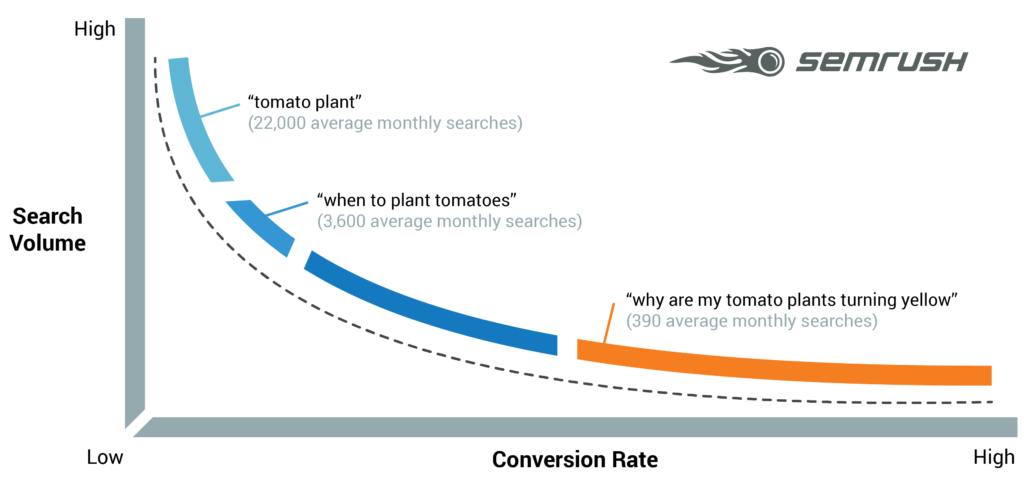Finding great content marketing ideas
If knowledge and skills are your business, demonstrating credibility and capability is essential, and well planned content marketing can significantly increase your authority and value to potential customers.
Why include content marketing in your strategy
Content marketing refers to any approach that seeks to educate and inform, leading from basic blogging and video content up to complex elearning strategies as part of a wider onboarding strategy.
It incorporates Social content strategies, youtube channels and web content, and gives potential clients a much better sense of who you are and what value you can bring to them which increases your perceived value.
However, with over a billion new pages being added to the internet each day, how can you hope to stand out?
It’s actually quite simple, as long as you understand how your customers learn, and how search engines like Google organise search results based on search intent.
Think in terms of questions not words
Long tail keywords have been a viable paid search strategy for a while, using smaller, more focussed groups of keywords where you trade lower search volume for disproportionately higher conversions, and therefore, potentially higher volumes of leads at a lower price per conversion.
This is driven by increased specificity in searches as we all have to filter out irrelevant search results to get closer to the information we want. This has led to longer, more focussed search terms that seek to answer questions rather than just basic keywords

People aren’t just searching for “shoes” anymore, now we are more likely to search for “shoes near me” or “black trainers near me”, or even “ which shoes shops have the best discounts”, and each of these searches tells us about what kind of information people want to hear.
But, Google is not clever enough to make the connection between the question and the answer, so you need to be specific, telling google the question that you are answering with your content.
Understanding how people search online.
We tend to buy things that help solve a problem. Whether it’s as basic as buying food because we’re hungry, taking a bus to get to work, the size of the problem will tend to correlate to the value we put into the solution and the effort we are prepared to put into finding it.
For more complex problems, we often don’t have a ready-made solution at hand, and will seek information that allows us to understand our problem, it’s potential solutions and what we need to do to implement them.
Understanding this process, and providing guidance at an early stage helps you engage with potential customers earlier, increasing your value to them and potentially your conversion rates.
However, it does require you to realise that you do more than just provide a service, and accept that there may be other solutions.
Imagine you’re a yoga instructor, is your value only in teaching someone a new position, or, are you really helping them solve their stress or pain problems?
Discovery – what is my problem
Keeping with the Yoga analogy, few people wake up in the morning thinking I must learn yoga!”.
Instead, they wake up after a restless night wondering why their neck hurts, or why they didn’t sleep well, and, if this continues, they are going to start looking for a solution, possibly googling “lack of sleep”, Causes of sleeplessness” etc.
This will lead them to isolate a possible cause, and motivate them to find a solution.
Understanding – what’s the root cause of my problem

Neck pain is often the cause, but what’s causing the next pain, is it a posture issue, a sports injury or something wrong with the pillow of bed? There are still loads of potential solutions, so our insomniac will likely search for more information to isolate the cause and get closer to a solution.
Once they realise it’s a posture issue, they can then focus on a set of potential solutions, which might include a new chair, changing their working practices, learning some new stretches or getting a massage, but they are closer to finding a solution that will solve their particular problem.
Do it yourself
Most people will try to solve their own problems, before they spend money on a solution, so will seek out exercise videos, How-To’s etc, that let them try out a possible solution before they commit.
It’s only once they have exhausted the free solutions that they will look to buy, so only at this point will the specific search terms that are traditionally used are relevant.
Be the solution provider
As this brief example demonstrates, most people will have gone through a comprehensive search process before they start looking for a specific provider online, and it’s likely that the earlier you engage with a client in the process, the more valuable they will see you and the more likely you are to be the provider of choice when they get to making their decision.
You’ve been there from the start and are demonstrably interested more in helping your client than taking their money.
How to find the right questions
There are millions of guides on the internet that tell you how to find the right keywords for your business, but most of these are internally focussed, identifying the words that describe you, not those that your customers are trying to find.
So, rather than thinking about yourself, think about what language your audience uses, and what questions they ask.
Customers

Obviously your customers are the best people to listen too, and, assuming you’re a people centred business that engages with your clients, you’ll have a good sense of what motivated them to find a solution in the first place.
The trick, however, is to look a bit deeper. You’re not interested in why they picked you, but what triggered the journey in the first place, what underlying need motivated them to seek answers and take action.
We call these “pain points”, stressors in a person’s life that are bad enough to take action to remove, and therefore of great value.
Understanding the pain point gets you closer to the root cause and the start of their journey, and allows you to reinforce how much value you add at a basic level.
Understanding search intent and how Google uses this.
Sometimes this isn’t easy, or we operate too far from our clients, so how do we understand what people are searching for? Thankfully, Google is there to help us out.
Google wants to be the researcher’s friend, seeking to give you the best possible answer to your question or query, and it starts by understanding the intent behind your search. You will have noticed how the search results page changes depending on the type of search you make, and this is because Google seeks to assess your search intent, deciding whether your goal is buying or information.
This is important, because it will affect whether you’re placed highly or not, and if you’re not on page 1, you’re effectively nowhere!
If Google thinks a search has an information intent, i.e. the reader is looking for information, it’s unlikely to present shopping or eCommerce responses, meaning that you will not be placed.
People also ask
Once Google decides on the type of search, it presents different content types, like featured snippets, that will highlight strong answers and help guide the searcher to the best content. It also presents a very useful tool called “ people also ask”, which highlights some of the most popular search queries related to the search term that you asked for.
This can help you refine your subject area and find interesting topics to write about.
Answer the public
There are a number of sites like Answer the Public, which collate potential questions and queries based on a seed phrase with the addition of a preposition. So, for example, they may start with “neck pain” and then use complex algorithms to create sentences, by adding “How” or “What” giving you a set of potential subjects to write about.
Quora
Forums are also a great source of questions. If there are any industry forums, try joining and searching these to get a better understanding of the kinds of queries your audience asks. It’s also a good place to start building connections and a presence, as you can also add your answers to the forums.
More generic sites like Quora or Reddit can also be helpful, although Reddit is often not for the faint hearted! Quora is a Q&A site, where people can ask specific questions to be answered by the general population. Searching for a subject will help you build a picture of the priority queries, and those in your industry who are also actively answering. You can find ideas for content marketing and obviously add your own answers.
Build a long term web presence with content marketing
Content on your website is permanent and the more credible and well written content you include the more likely you are to be found. Covering your subjects in more detail, aligning your content with the searches being made and improving your relevance increases your search ranking and therefore the number of people likely to see you.
You can obviously use social media to promote your content, but remember, you are trying to make your site more visible, not Facebooks, so don’t waste your best content on post. Create valuable content for your site, then create shorter posts for Social media. That way you can build your audience amongst both groups and drive more traffic to your site.


